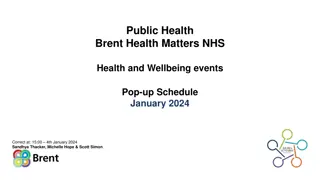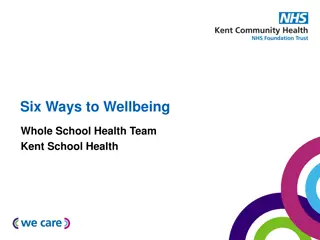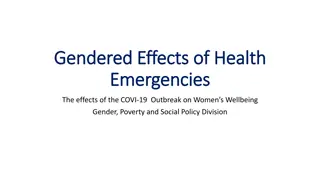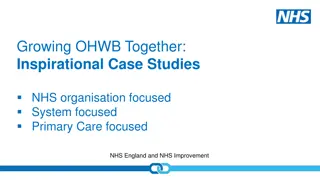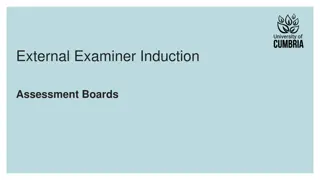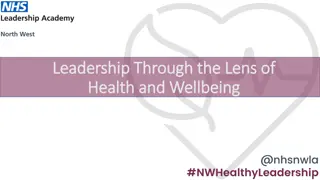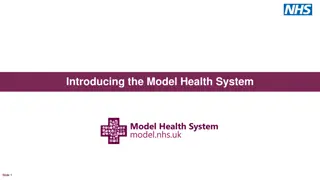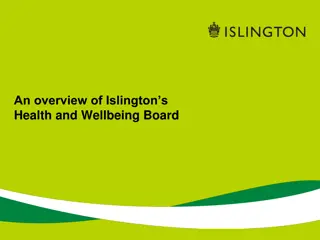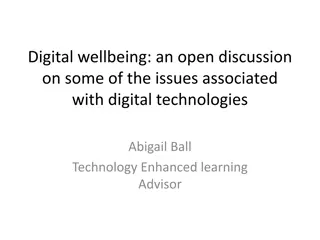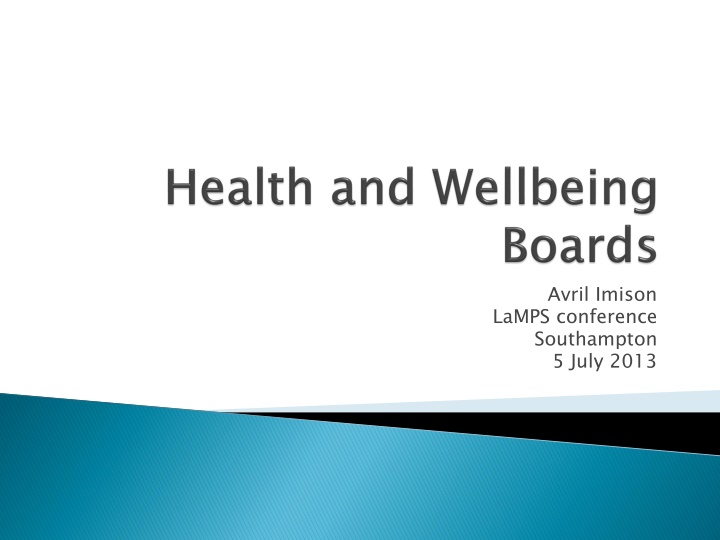
Public Health Responsibilities and Strategies in Council Committees
Learn about the roles and responsibilities of public health officials within Council committees, including the use of data to inform strategies, collaboration with other services, and the importance of joint commissioning and community engagement.
Download Presentation

Please find below an Image/Link to download the presentation.
The content on the website is provided AS IS for your information and personal use only. It may not be sold, licensed, or shared on other websites without obtaining consent from the author. If you encounter any issues during the download, it is possible that the publisher has removed the file from their server.
You are allowed to download the files provided on this website for personal or commercial use, subject to the condition that they are used lawfully. All files are the property of their respective owners.
The content on the website is provided AS IS for your information and personal use only. It may not be sold, licensed, or shared on other websites without obtaining consent from the author.
E N D
Presentation Transcript
Avril Imison LaMPS conference Southampton 5 July 2013
Were in Shadow form April 12 March 13 April 13 forwards; real and have to meet in Public-fully constituted Council committee Boards of Commissioners not Commissioning Boards Strategic Boards-shared vision and principles has to have an agreed HWB Strategy (using JSNA) Has responsibilities but no decision making power Memberships of Boards vary Health Oversight and Scrutiny Committee (HOSC) are able to comment on HWB activity
Councils duty to take steps to improve public health SoS s public health protection or health improvement functions Planning and responding to emergencies that present a public health risk Role to co-operate with the police, probation and prison services Plus anything else the SoS sees fits to delegate The DPH has to write a Public Health report and the LA has a responsibility to publish it DPH is a mandated member of the HWB
Use of the JSNA and PHE data provided to the CCG and to Councils to inform the production of; A Joint Health and Wellbeing Strategy Updated JSNA Pharmaceutical Needs assessment Plus responsibility to increase and develop integration of health and social care to expand joint commissioning to ensure Public Engagement; Healthwatch are members of the Board(community and Vol sector) and strengthen local accountability
Unusual for Councils as have Councillors and Officers of the Council working together Power of Health varies from place to place according to the number of CCGs Voting and Quorums also vary No providers- as it is a grouping of commissioners Director of Public Health mandated position; PHE say as honest broker , not easy- now also the arbitrators in HCAI disputes Unlikely that any of us would be a member
Supporting the movement of secondary healthcare services into community based settings saving over 8 billion in England Moving towards a healthcare system in which private providers are able to deliver over 20% of services by 2020 Effectively managing change throughout a period of transition Working with private sector healthcare companies looking to obtain community health contracts with local and NHS health services Encouraging alternative providers of health services within the community setting Supporting the creation of successful social enterprises within the health sector A fundamental shift in the NHS shift towards a personalised system: Changing the way health services are designed, commissioned and delivered as described by Bob Ricketts Director of Strategy and Development Bob Ricketts Director of Strategy and P Provider rovider Development
The emerging role of health and wellbeing boards as a pivotal aspect of delivering community health services Strengthening working relationships between health and social care professions Encouraging the development of more integrated commissioning of services Effectively implementing statutory functions from April 2013 The role of local authority members in health and wellbeing boards Encouraging community engagement in community health services: Ensuring accountability Supporting the work of health and wellbeing boards: Building relationships across the health social care sector to improve patient outcomes in the community As described by a County Council leader and LGA County Council leader and LGA
Know who is on your local Board; chose an appropriate person to lobby-E.g. councillor or Healthwatch Councillors are new to the Health agenda Councils are political and so lobbying and briefing will be necessary, but watch your relationship with your Commissioners Health Commissioning is still in the hands of the CCG, so lead GPs will also need to be lobbied Ensure you link your subject to the agreed priorities ; HWB Strategy and the CCG Integrated plan( plus JSNA) Localism agenda v Competition and AQP Councils are used to procuring services from the Private and Voluntary sectors- threat or opportunity Councils tend to be poorer than the NHS and are subject to greater efficiency savings (CSR minus 10%)- have savings in mind as ever New integrated Health and social care plans are the new requirement- so make friends with your Borough Colleagues
On the Horizon are Integrated Care organisations (ICO) ; this will definitely affect your services and your staff Norman Lamb MP announcement was on national TV These organisations will be the mechanism to save money by integrating H&SC teams to create savings There is a national working group looking at how these will function; Legal status, operating model ,financing, staffing etc
Go and listen to the HWB in Public Keep up with and read commissioning documents for priorities Lobby when you can, whilst having an eye to your main commissioners views- use the priorities One Councillor will have Public health and HWB in their portfolio Join in on any developments; ICO s, Social enterprises, new developments in pathway redesign


